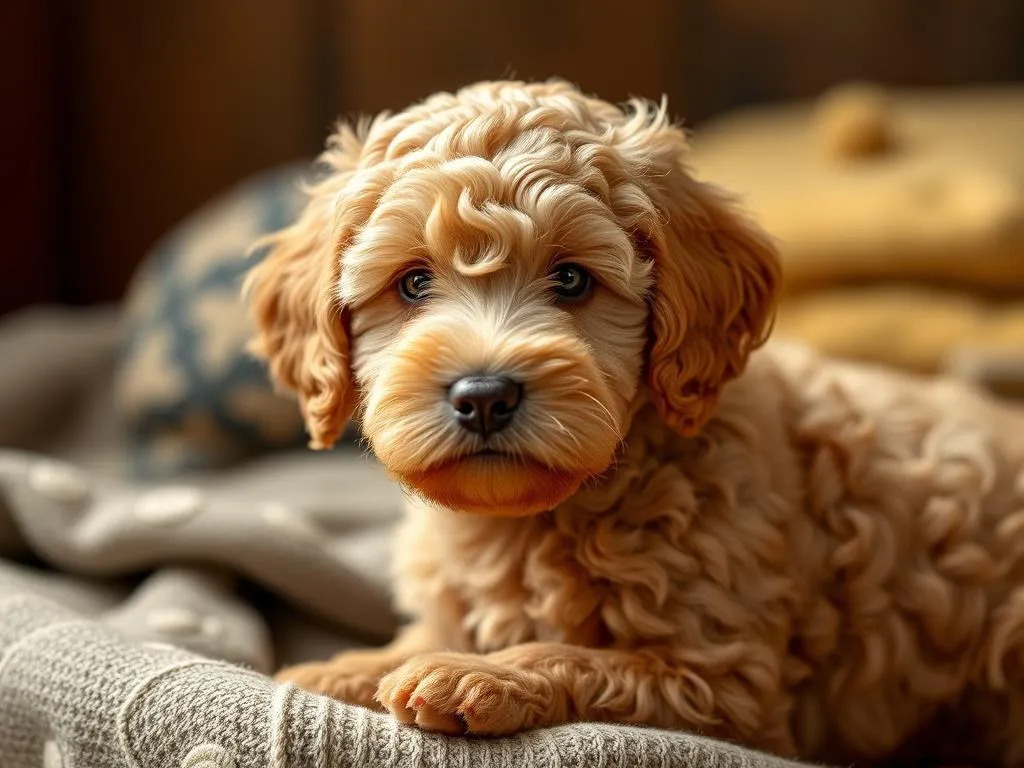
Understanding the diversity of dog breeds can be both fascinating and overwhelming. Each breed carries its unique traits, characteristics, and histories, which can affect everything from training to health. Among the many breeds available, the Mini Goldendoodle has gained considerable popularity due to its appealing qualities. This article dives deep into the Mini Goldendoodle, exploring its origins, traits, care needs, and how it compares to other breeds.
Understanding Dog Breeds
Definition of Dog Breeds
A dog breed is a specific lineage of dogs that share common characteristics, such as appearance, behavior, and temperament. These characteristics can be influenced by genetics, environment, and upbringing. Understanding the traits of different breeds is crucial for potential dog owners to choose a companion that fits their lifestyle.
Categories of Dog Breeds
Dog breeds can be categorized into various groups based on their roles and characteristics:
- Working breeds: Bred for tasks like guarding and search-and-rescue.
- Herding breeds: Developed to manage livestock.
- Sporting breeds: Known for their hunting skills.
- Terriers: Energetic and feisty, originally bred for hunting vermin.
- Toy breeds: Small companion dogs.
- Hounds: Skilled in tracking and hunting.
- Non-sporting breeds: Diverse group with varying characteristics.
- Mixed breeds: Dogs with lineage from two or more breeds.
Overview of the Mini Goldendoodle
History and Origin
The Mini Goldendoodle is a designer breed that emerged in the late 20th century as a cross between the Golden Retriever and the Poodle. The goal was to create a dog that combined the friendly, sociable nature of the Golden Retriever with the intelligence and low-shedding coat of the Poodle. As the demand for smaller pets grew, breeders began developing the Mini Goldendoodle by selectively breeding smaller Poodles with Goldendoodles.
Physical Characteristics
Mini Goldendoodles typically weigh between 15 to 35 pounds and stand about 13 to 20 inches tall. Their size can vary depending on the Poodle parent used in breeding, either a Toy or Miniature Poodle.
Coat Types and Colors
The coat of a Mini Goldendoodle can range from wavy to curly, and it comes in various colors, including cream, gold, apricot, and even darker shades like chocolate. Their fur tends to be low-shedding, making them a popular choice for families with allergies.
Distinctive Features
Mini Goldendoodles have a rounded, expressive face, often with floppy ears. Their expressive eyes and friendly demeanor give them an endearing appearance that many dog lovers find irresistible.
Temperament and Personality Traits
The Mini Goldendoodle is known for its friendly and intelligent personality. They are generally:
- Social: Thrive on human interaction and enjoy being part of family activities.
- Affectionate: Known for their loving nature, they enjoy cuddling and being close to their owners.
- Intelligent: They learn quickly, making them suitable for various activities, including obedience training.
These traits make Mini Goldendoodles great companions for families, including those with children.
Care and Maintenance of Mini Goldendoodles
Grooming Needs
Mini Goldendoodles require regular grooming to keep their coats healthy and free of mats.
- Frequency: It’s recommended to groom them every 4 to 6 weeks.
- Tools: Use a slicker brush, comb, and clippers for maintenance.
- Tips: Regular baths and brushing help maintain coat quality and reduce shedding.
Exercise Requirements
These dogs are energetic and require daily exercise to stay healthy and happy.
- Duration: Aim for at least 30 to 60 minutes of exercise per day.
- Activities: Enjoy walks, playtime in the yard, and interactive games.
- Mental Stimulation: Engaging in puzzle toys and training sessions is essential for their mental well-being.
Diet and Nutrition
A balanced diet is crucial for maintaining the health of your Mini Goldendoodle.
- Recommended Diet: Choose high-quality dog food that meets their nutritional needs.
- Balanced Nutrition: Ensure a mix of proteins, fats, and carbohydrates.
- Dietary Restrictions: Be aware of common allergies, such as to grains or certain proteins.
Training and Socialization
Training Techniques
Early training is vital for Mini Goldendoodles to ensure they grow into well-behaved adults.
- Importance: Early socialization helps them become confident and well-adjusted.
- Methods: Use positive reinforcement techniques to encourage good behavior. Consistency is key in teaching commands and tricks.
Socialization Tips
Socialization is essential for Mini Goldendoodles to develop good manners and confidence.
- Activities: Introduce them to various environments, people, and other dogs.
- Behavioral Issues: Address common issues like separation anxiety by ensuring they feel secure and loved.
Health Considerations
Common Health Issues
While Mini Goldendoodles are generally healthy, they can be prone to certain health issues.
- Hip Dysplasia: A common concern in many dog breeds.
- Eye Conditions: Such as cataracts and progressive retinal atrophy.
- Ear Infections: Due to their floppy ears, regular ear cleaning is necessary.
Regular veterinary check-ups can help detect and address these issues early.
Lifespan and Quality of Life
The average lifespan of a Mini Goldendoodle is around 12 to 16 years. Factors that can affect their lifespan include genetics, diet, and overall care.
- Quality of Life: Providing proper nutrition, regular exercise, and mental stimulation can greatly enhance their life quality.
Comparing Mini Goldendoodles to Other Breeds
Mini Goldendoodle vs. Standard Goldendoodle
While both breeds share similar characteristics, the Mini Goldendoodle differs from the Standard Goldendoodle primarily in size and exercise needs.
- Size: Mini Goldendoodles are smaller and require less space.
- Temperament: Both share friendly and intelligent traits, but the Mini may have a slightly more adaptable nature to smaller living spaces.
Mini Goldendoodle vs. Other Mini Breeds
When compared to other popular mini breeds like the Miniature Poodle and Cocker Spaniel, the Mini Goldendoodle has its pros and cons.
- Miniature Poodle: Highly intelligent and low-shedding but may require more grooming.
- Cocker Spaniel: Affectionate and friendly but can shed more than a Mini Goldendoodle.
The choice between these breeds often depends on lifestyle, preferences, and specific needs.
Adoption and Purchase Considerations
Finding a Mini Goldendoodle
When considering adding a Mini Goldendoodle to your family, it’s essential to find a reputable source.
- Breeders: Look for breeders who prioritize health testing and responsible breeding practices.
- Rescue Organizations: Consider adopting from rescue groups that specialize in Doodles.
Cost and Budgeting
The cost of a Mini Goldendoodle can vary widely depending on factors like breeder reputation and geographic location.
- Price Range: Expect to pay between $1,500 to $3,000 for a Mini Goldendoodle puppy.
- Ongoing Costs: These include food, grooming, veterinary care, and training classes.
Conclusion
The Mini Goldendoodle stands out as a beloved family pet, known for its friendly demeanor, intelligence, and adaptability. When choosing a breed, it’s crucial to consider your lifestyle and needs, ensuring that the chosen dog will fit seamlessly into your life. The joys of pet ownership are profound, and with responsible breeding practices and thoughtful care, you can enjoy a fulfilling companionship with a Mini Goldendoodle or any other breed that captures your heart.








